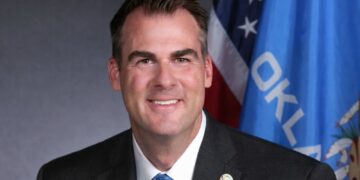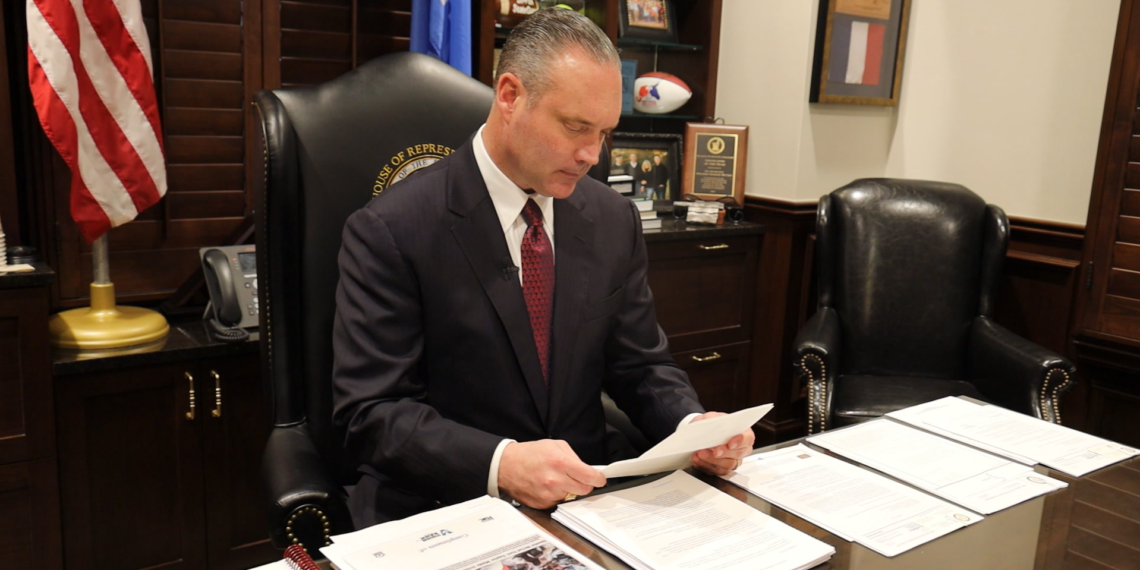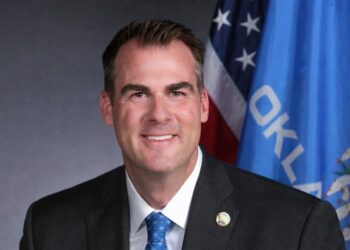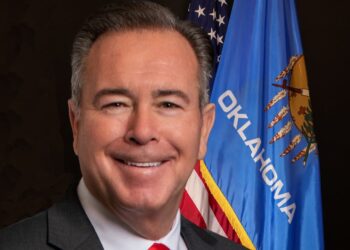OKLAHOMA CITY (OBV) – Oklahoma Business Voice has a new series in which we go in-depth in one-on-one interviews with the top political and business leaders in Oklahoma. Our first one-on-one installment features Oklahoma House Speaker Charles McCall, R-Atoka, who was elected to represent House District 22 in 2012 after serving as Atoka’s mayor from 2005 to 2012.
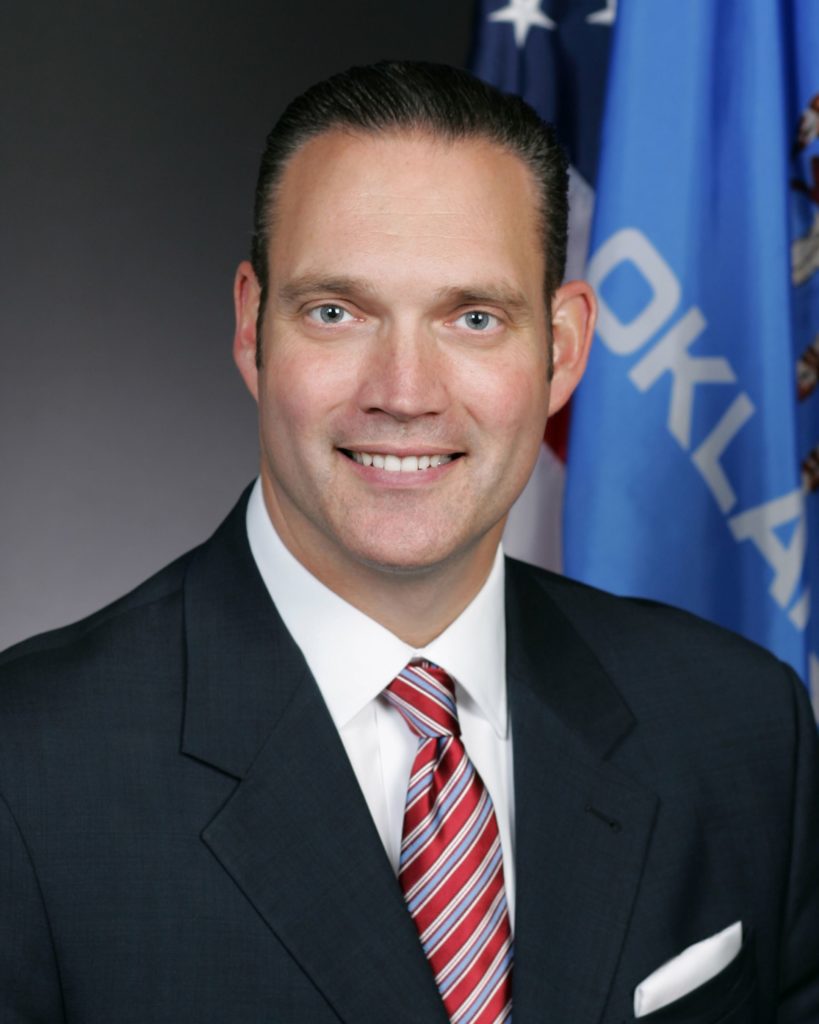
McCall is now in his eighth and final year as House speaker and 12th and final year in the House of Representatives. An individual can serve no more than 12 years in the legislature.
OBV spoke one on one with McCall before the start of the 59th Legislature, asking him about issues that impact the state’s business community, including tax reform efforts in the State Legislature, and about his final year in the legislature.
That full one-on-one interview is shared below:
Tax reform has been a big priority of yours for the last couple of years. Why is it so important to you?
McCall: Well, I think it’s a driver for the state’s economy. When I came into the speakership, even when I was selected as speaker designate, I had my first press conference talking about what drives the state of Oklahoma, its jobs and industry. The tax rates here in the state of Oklahoma, in our tax structure, are a direct correlation to how successful we will be in competing with other states.
And also, the level of achievement and realization that we can actually obtain in terms of prosperity for people in the state of Oklahoma going on with businesses in the state of Oklahoma and the people in the state of Oklahoma. I believe that we’ve done that. We’ve done some great work over the last few years. Tax reform is still something that I think we have a long way to go on and we need to continue to focus on it. And once again, we’ve introduced legislation this year on that. We’re fourth in the country on a corporate tax, income tax rate, which is great. Introducing a bill again this year to phase that out over five years really does not bring in a lot of money to the state of Oklahoma, but it’s really a deterrent when companies are looking at the state of Oklahoma, even, more importantly, the companies that exist here now. And in terms of what additional investments they may want to make here in the state of Oklahoma, as opposed to looking out of state. The personal income tax rate – if you look across the country – those states that are having the greatest amount of success year after year have found ways to get to zero on their personal income tax rate.
You can’t do that overnight, even the corporate income tax rate, it’s four percent. Talking about a five-year phase out on that with that piece of legislation. But it’s very important this year that the legislature moved the House of Representatives legislation to the Senate the last three years. And I think this year the Senate is ready to make some moves. The governor wants to see some moves. I appreciate his support for the legislation in our efforts here in the House as well. But hopefully we will find a path not just for one cut this year, but a path for multiple cuts going forward as revenues continue to increase for the state of Oklahoma.
Just for the lay person, on the corporate tax, a lot of people say, ‘Hey, you know, make corporations pay taxes.’ They pay a myriad of other taxes. It’s just one that has heaped up on top of all that really, like you said, doesn’t bring in a ton when you look at the final ledger of the state, right?
McCall: Absolutely. And those get passed on beyond the corporations to their shareholders. The amount of money that corporations or businesses, whether you’re C-corp or S-corp, whether you’re a limited liability corporation or company, whether you’re a partnership or a DBA doing business as, tax structure matters. You can’t make an adjustment with one and see a lot of change.
Anymore, in this day and time, there’s very few C-corporations left. That’s why you see the corporate tax rates going away in other states. Most companies are electing to be different types of structures. All money in an S-corporation flows down to the shareholder. The shareholder bears the tax liability. So, if you don’t lower the personal income tax, you’ve done nothing to help an S-corporation, an LLC or a partnership.
And you have to do those things in tandem. If you look just over the last few years when we lowered the personal income tax and the corporate income tax rate from six to four, and then we lowered the personal income tax by a quarter point, we did not see revenues go down in the state of Oklahoma. We saw revenues increase. And that’s what happens when you lower taxes. Companies and people have more money in their pocket and they invest where they spend, regardless of what they decide to do, whether reinvest in the in the business or spend, pass that money down to individual shareholders, employees. That money is spent and it moves around the economy and it throws revenue off to the state of Oklahoma.
We’re on a great trajectory. It’s time to make those cuts again and really stimulate our economy to a higher level.
Oklahoma over the last couple of years has really taken a priority in economic development. And you would have to think that the corporate tax structure is a huge part of that. So, as we get more and more focused on getting some of these big companies, taxes is definitely something we have to look at, right?
McCall: Absolutely. It’s not just incentives that you offer at the state. And as long as the other states are offering incentives, we better be competitive in that area as well. I’m not talking about incentives just for companies to come to Oklahoma. I’m talking about the incentives that our companies that have been here, that domicile here in the state of Oklahoma, you have to give them a reason to stay as well. But everyone’s looking at these tax structures. Business is becoming more and more competitive, not just across our nation, but across the world. People, businesses, capital, they are looking for the greatest amount of return and especially for these publicly traded companies that have to answer to shareholders.
You know, those things a small percent, just a little bit extra margin can make a huge difference and has to be part of their decision on where they’re going and where they’re going to expand.
You also mentioned that the Senate probably is a good place to move on some of this. Has there been good collaboration on some of this stuff yet or does there need to be more?
McCall: It’s early. We haven’t started session yet. But when I say it looks like the Senate is preparing to move on that this year, that is just from me seeing Senate bills being filed in that chamber on these topics. So, while the House has filed these and moved these over the last two legislative cycles, the 58th and the 59th Legislature, the last three years, the Senate has never introduced or moved any of these concepts out of their own chamber.
So, seeing those bills introduced, that tends to lead me to believe that they have an appetite to take that up this year. I’m hopeful of that. And maybe I’m just being overly optimistic, but I believe so.
Raising the standard deduction is a big part of changing the personal income tax rate as well. You get the higher deduction, which doesn’t hurt the people on the bottom, and it collapses everything down to one rate, which makes it easier on everyone to file their taxes, right?
McCall: Yeah, absolutely. I think it’s a good approach to flatten it out. And really, you’re helping the lowest income people in the state of Oklahoma by raising the threshold. They’ll have more dollars that are tax free before they reach that threshold, that they even start paying a dollar into the state of Oklahoma. While you simplify the tax code and create certainty for jobs, for people and for businesses. You know, doing away the franchise tax this last year is great. That was just another form of corporate income tax or business tax in the state, although it was capped at $20,000. It was just a double or triple taxation of part of our structure that needed to go away, that got done. For the individuals, we did away with the marriage penalty in the tax code. And by collapsing these taxation brackets into one, we will greatly help everybody in the state of Oklahoma. Everyone will show a tax cut or tax decrease. And once again, it doesn’t matter where you are, what you’re doing in the state of Oklahoma, if you are a citizen here and a taxpayer here, at the end of the day, these pieces of legislation will leave more dollars in your pocket to decide what you’re going to do with the needs that you have.
We just finished our first round of polling in the state of Oklahoma leading up to the session, briefed our caucus on it last week. Inflation is still the top issue people are worried about here in the state of Oklahoma. And how does the state effectuate some type of relief policy for inflation? We don’t control the money supply. We don’t print money in Oklahoma. We balance our budgets to what we have, but a lot of the inflation that we see has to do with the federal government printing money and injecting that into the economy. And now we’ve got too many dollars chasing too few goods. But how can the state of Oklahoma help a family? The only way that we can help them with inflation is to leave more of those dollars in their pocket if they need to allocate that towards groceries, clothing, utility bills. Whatever those basic necessities of life services are, they’ll put those dollars there. They can direct that better than anybody else can. And so, I think cutting the tax rate and leaving more money in everybody’s pocket individually is the way that we can help people of the state of Oklahoma the most get through this inflation. Cutting taxes for the business and industry, that helps them, that creates an incentive for them to continue to invest here; that creates some certainty for them and incentivizes them to grow, hire more, build out facilities and whatnot.
So, I think this is a very crucial time for the state. This is not just about cutting taxes because it looks politically favorable. And it’s an election year now. It’s about cutting taxes because it’s the right thing to do long-term for our state as well as short-term period.
Just kind of taking a step back and getting ready to go through your last session. Has it sunk in yet that this will be your last one?
McCall: Yeah, it’s just starting to sink in. I don’t know if it’s the last session, we’ll have to talk to the governor about that (laughs). I think we average two sessions a year, you know, over the last 11 years that I’ve been here. But yeah, it’s the last one. But I haven’t stopped to think about it really being the last or how’s it going to be different. This year will be a transition. Each caucus in the House of Representatives will kind of pick their designate that’s going to vie to become the speaker for the 60th legislature when I term out and finish my service in November.
But I’m really focused on having a great session. There’s many of us here in this chamber that run for these offices and serve in these positions that have a lot of things back home that are important between family and business, that when you’re here, you don’t want to waste that squandering opportunity.
So I hope everybody is returning this session. They get some really big things, bold things done for the state of Oklahoma. Then then we can talk about taking the victory lap once session’s over.
Have you thought about legacy? Have you thought about what you want to be remembered for?
McCall: When I look back over what will be 12 years of service to the state of Oklahoma in the House of Representatives – eight years of that being the speaker of the House – I can’t help but think what things were like economically before I was elected speaker and when I came into that role, all the work that’s been accomplished over the last eight years to really turn that tide, that dynamic around, moving from the worst of times in the state of Oklahoma to the very best of times in the state of Oklahoma. And thinking about how all those groups and all the individuals, not just the members of the House of Representatives or the Oklahoma Senate, but pro-business groups like The State Chamber of Commerce and others who really worked with us to help us turn that around and put us in a position. Now, we have reserves that we can go [to] and we can make strategic decisions to really take some really big strides and really put Oklahoma front and center on the national stage as far as one of its 50 states and its performance and its accomplishments.
It’s fair to say you built the foundation for the launchpad.
McCall: I think we’ve done more than just built the foundation. I think we’ve probably laid four or five courses of stone and brick, but something certainly for the next legislature to come in and really continue to build on. And I think there’s an opportunity, just the synergy that’s been created over the last five years – you build synergy [and] momentum continues to get bigger and bigger as long as you keep moving forward. So, I think as much as we’ve been able to accomplish, and as excited as I am and thankful and honored to have served during this period of time, I’m really excited not just about this session – what we can do to finish the 59th legislature – but I really think we’re leaving those people that are coming back for the 60th in the in the best situation to do some great things as well.
Leave it better than you found it is what I was always encouraged to pursue.
We ultimately are responsible for what the House produces. We’ll focus on that, and we’ll be encouraging the Senate and our colleagues over there and the governor. I really think we’re kind of in a golden age right now. There’s so much that can be done. And to your point, so much gets done. I always self-assess after a legislative session. “Where were the misses? Where did we not maximize outcomes?” And there’s been a few of those. But we’ve got another opportunity to come back and get those things done as well as some other great things.
But ultimately, I think the tax structure of the state of Oklahoma is what gives the people of our state the biggest opportunity to achieve higher levels of of prosperity. And that will always be a pursuit of mine.




